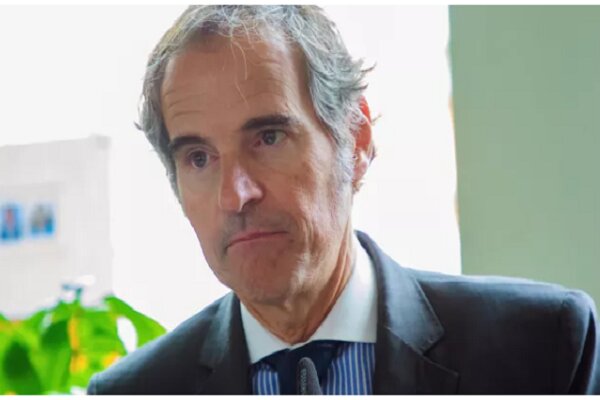I hope I can go to Tehran soon: IAEA’s Grossi

TEHRAN – Rafael Grossi, director general of the International Atomic Energy Agency (IAEA), has expressed hope to visit Iran soon.
“I hope I can go to Tehran. I always say that the Agency is a place of agreement, a space, a platform for mutual understanding. So I am ready to travel and start again, if possible, as soon as possible,” Grossi said in an interview with Vatican Media on Thursday.
Grossi, who had visited the Vatican on Thursday for talks with Pope Francis, also said there is an impasse in negotiations between Iran and its Western negotiating partners (the U.S., France, Germany and Britain) to revive the 2015 nuclear deal – JCPOA- and also between Iran and the IAEA.
“There is an impasse, the negotiations have broken down, there are many meetings and exchanges and that is why the Agency — and I personally — do not want to leave this political vacuum around such a volatile and dangerous issue. There are two parallel paths: that of the overall agreement, the so-called JCPOA (Joint Comprehensive Plan of Action); and also the bilateral negotiation between the Agency and Iran. We have not been able to make progress,” Grossi explained.
The IAEA chief acknowledged that Iran is making inroads in its nuclear industry, including manufacturing advanced centrifuges.
“Iran, at the same time, is making progress: progress in the process of uranium enrichment, [and] in the development and construction of more and more advanced centrifuges,” Grossi said, according to Vatican News.
The root of all the existing problems is the reckless move by the Donald Trump administration in quitting the hard-won JCPOA.
U.S. State Department spokesperson Ned Price said on Monday that Trump’s decision to pull Washington out of the nuclear deal was a “great strategic blunder”.
"This (Joe Biden) administration considers the decision on the part of the last administration to withdraw from the JCPOA, one of the greatest strategic blunders of American foreign policy in recent years," Price told reporters at his daily news conference.
The JCPOA was singed in July 2015 between Iran, the five permanent members of the UN Security Council (the U.S., Russia, China, France, Britain), Germany and the European Union.
Under the nuclear deal Iran agreed to put limits on its nuclear activities in exchange for termination of economic and financial sanctions. However, Trump left the multilateral agreement in May 2018 under his “maximum pressure” campaign against Iran. He returned sanctions and imposed new ones.
The Trump administration also threatened secondary sanctions on countries that do business with Iran.
One year after the U.S. quit the deal Iran remained fully loyal to the terms of the JCPOA and this is confirmed by the IAEA which was tasked to monitor Iran’s compliance with the pact. However, in May 2019 Iran announced that its “strategic patience” is over and started to gradually remove bans on its nuclear activities. At the time, Iran insisted if the European sides compensate Iran for the sanctions, it will reverse its decision. However, the European sides failed to honor their commitments, fearing the U.S. secondary sanctions.
Under the presidency of Joe Biden, negotiations were resumed in April 2021 to put the JCPOA on its right track and the negotiators from each side made considerable progress to revitalize the agreement. However, the talks have hit a snag and the two sides (Iran and the U.S.) accuse each other for the impasse in the talks.
